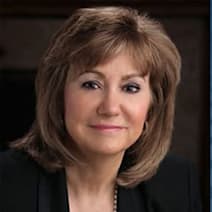Top Gladstone, NJ CPS Lawyers Near You
The Attorneys at Melissa Cipriano Law Offices Bring A Calming Presence To Emotional Family Law Conflicts With Outstanding Results.
Se Habla Español
Virtual Appointments
252 South St, Freehold, NJ 07728
Contact LaRocca Hornik Rosen Greenberg & Crupi LLC for your CPS needs in New Jersey.
Se Habla Español
Free Consultation
11 Broad Street, Freehold, NJ 07728
Clients who need legal help with CPS concerns can contact Law Office of Edward Fradkin, a reputable law firm in Gladstone, New Jersey.
Se Habla Español
Free Consultation
7 North Willow Street, Suite 7A, Montclair, NJ 07042
Other Nearby Offices
Clients in the Gladstone, New Jersey area who need legal help with CPS issues can connect with Law Offices of Peter G. Aziz & Associates LLC.
Free Consultation
1061 Bloomfield Ave., West Caldwell, NJ 07006
Other Nearby Offices
Carolann M. Aschoff, P.C. has experience helping clients with their CPS needs in Gladstone, New Jersey.
Se Habla Español
Free Consultation
1037 Raymond Blvd, Suite 900, Newark, NJ 07102
505 Main, Hackensack, NJ 07601
600 Campus Drive, Florham Park, NJ 07932
1312 Atlantic Avenue, Manasquan, NJ 08736
51 John F. Kennedy Parkway, First Floor West, Short Hills, NJ 07078
63 Ridge Road, Lyndhurst, NJ 07071
21 Main Street, Suite 250, Hackensack, NJ 07601
49 Market Street, Morristown, NJ 07960
140 E. Ridgewood Avenue, Suite 415, South Tower, Paramus, NJ 07652
1040 Broad St, Suite 104, Shrewsbury, NJ 07702
80 Court Street, Freehold, NJ 07728
One Hadley Ave, Toms River, NJ 08753
136 Central Ave, 3rd Floor, Clark, NJ 07066
15 Commerce Blvd., Succasunna, NJ 07876
135 US-202, Suite 8, Bedminster, NJ 07921
7 Giralda Farms, Madison, NJ 07940
549 Summit Ave, Jersey City, NJ 07306
7-G Auer Court, Williamsburg Commons, East Brunswick, NJ 08816
60 Washington Street, Morristown, NJ 07960
10 West Hanover Avenue, Randolph, NJ 07869
15 Mountain Blvd, Warren, NJ 07059
Gladstone CPS Information
Lead Counsel independently verifies CPS attorneys in Gladstone and checks their standing with New Jersey bar associations.
Our Verification Process and Criteria
Ample Experience
Attorneys must meet stringent qualifications and prove they practice in the area of law they’re verified in.Good Standing
Be in good standing with their bar associations and maintain a clean disciplinary record.Annual Review
Submit to an annual review to retain their Lead Counsel Verified status.Client Commitment
Pledge to follow the highest quality client service and ethical standards.
State Required Disclosure: No aspect of this advertisement has been approved by the Supreme Court of New Jersey.
What Does CPS Look for in a Home Visit?
When a CPS worker visits a home, they’ll look for signs that indicate how safe a home is or not. For example, is it exceedingly dirty to the point it poses a health hazard? Is there adequate food? Are there open signs of illegal activity like drug paraphernalia? Are dangerous objects or weapons easily accessible to children? Do the children have appropriate necessities? They won’t expect a spotless, perfect home, just one that meets reasonable safety standards. They’ll also be gauging your and your family’s behavior and will likely want to interview some or all of you to get a better sense of your routine and the kind of home life you have.
Are There Any CPS Lawyers Near Me In Gladstone, NJ?
The possibility of losing your children is more than many parents can bear. Getting the representation you deserve to protect your rights is never more important than when you are faced with a CPS case. You have rights under the law and an experienced CPS attorney will help you navigate the system to work toward a positive outcome for everyone. The LawInfo directory can assist you in finding a verified CPS lawyer in Gladstone.
When Can CPS Take Your Child?
CPS can usually only remove a child from their home if there’s a valid, reasonable concern for the child’s safety. An order for removal is typically granted by a judge, either after an investigation or before an investigation if they consider your situation such a severe emergency that it requires instant separation. Emergency removal cases are rare, however, so unless there is an immediate threat, an investigation will need to take place first. Cases of neglect and abuse are the most likely causes for CPS to take your children.
What Happens if You Ignore CPS?
If a CPS caseworker contacts you as part of an investigation against you, you have some options for how to respond. Unless the caseworker has a warrant signed by a judge, you don’t have to let them into your home. You can also refuse to answer questions, and if your kids are home with you, you could prevent the caseworker from interviewing them at that time. However, your case will remain open and the investigation will continue. They may be able to come back with a search warrant to enter your home, get a court order to interview your children, or may even be allowed to interview your kids while they’re at school, even without your permission.
What if I Have a Complaint About CPS?
CPS exists to take care of children and families, but the process doesn’t always go perfectly each time. If you have a complaint about a CPS employee, you can try to talk to them directly and then escalate your concern to their manager if the employee is not willing to work things out with you. There are several levels of supervision within the CPS system, and you can escalate complaints all the way up to the state director. Some jurisdictions will even have a dedicated ombudsman who will investigate administrative complaints. If your concern applies more to systematic or policy issues within CPS, you may have related community organizations in your area you can contact, or you can reach out to your state representatives.
What Is a Dependency Case?
Minor children are considered legally dependent on adult caretakers. When a child is left without a guardian who can take care of them, Child Protective Services may intervene and petition the courts to step in to support the child as a dependency case. Children may end up as dependents of the court if there’s evidence that they’re being abused by their parent or guardian, if their caretaker is neglecting or has abandoned them, or if the guardian becomes incarcerated, is struggling with substance abuse, or is otherwise unable to take care of the child. In most cases, the courts will try to assign programs to help the parents or guardians gain resources and education to better care for their children for family reunification. When that’s not possible, the children will usually wind up living with another relative or in foster care.





